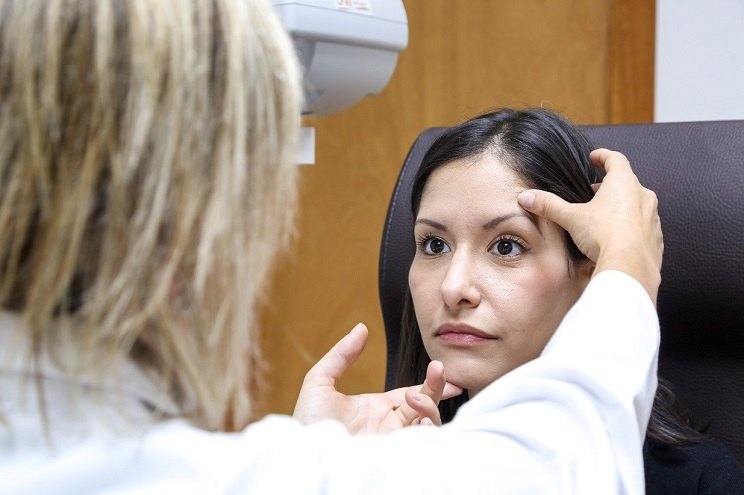
Blepharoplasty or eyelid surgery is an intervention aimed to remove the excess skin, and sometimes the fat, from the eyelids (upper and/or lower). It is usually performed on people older than 35 or 40 years old and can be carried out for health and/or aesthetic reasons.
It is advisable that an oculoplastic ophthalmologist takes care of this intervention, as it involves the eye area.
Blepharoplasty is a minimally invasive surgery that is performed with local anesthesia and sedation. The intervention lasts approximately one hour, depending on whether it is a superior/inferior blepharoplasty or both. The patient can leave the clinic after a short period of time and in complete safety.
During the operation there is usually no pain, since it is done with local anesthesia and sedation. The postoperative period also tends to be quite bearable. During the days after, the patient does not usually feel pain, although he may have bruises, dry eyes or feel discomfort.
As with any other intervention, the process and recovery time may vary for each patient and will depend on whether the patient has undergone upper, lower, or both blepharoplasties. Even so, the recovery is usually quite fast and after a few weeks the patient will recover his appearance and will be able to return to work.
In the upper blepharoplasty, the doctor makes a suture that is hidden behind the fold of the eyelid and is imperceptible after a few months. Lower blepharoplasty can be internal (with no scars on the skin) or external (with minimal scar under the eyelashes).
During the postoperative period of a blepharoplasty the patient can lead a normal but quite life. During the first week it is recommended not to carry out any kind of sports activity. From the second week, the patient can resume physical exercise as long as his doctor authorizes it.
During the hours or days after surgery, the patient may experience blurred vision, although he will be able to read and use electronic devices with a screen without any problem. As for driving, it is recommended that he has fully recovered the vision before getting behind the wheel.
It will be necessary to attend the postoperative controls that are scheduled.
After surgery, it is important that the patient follows these recommendations:
If you experience pain or have doubts about the postoperative period, check with your ophthalmologist.

Contact us or request an appointment with our medical team.